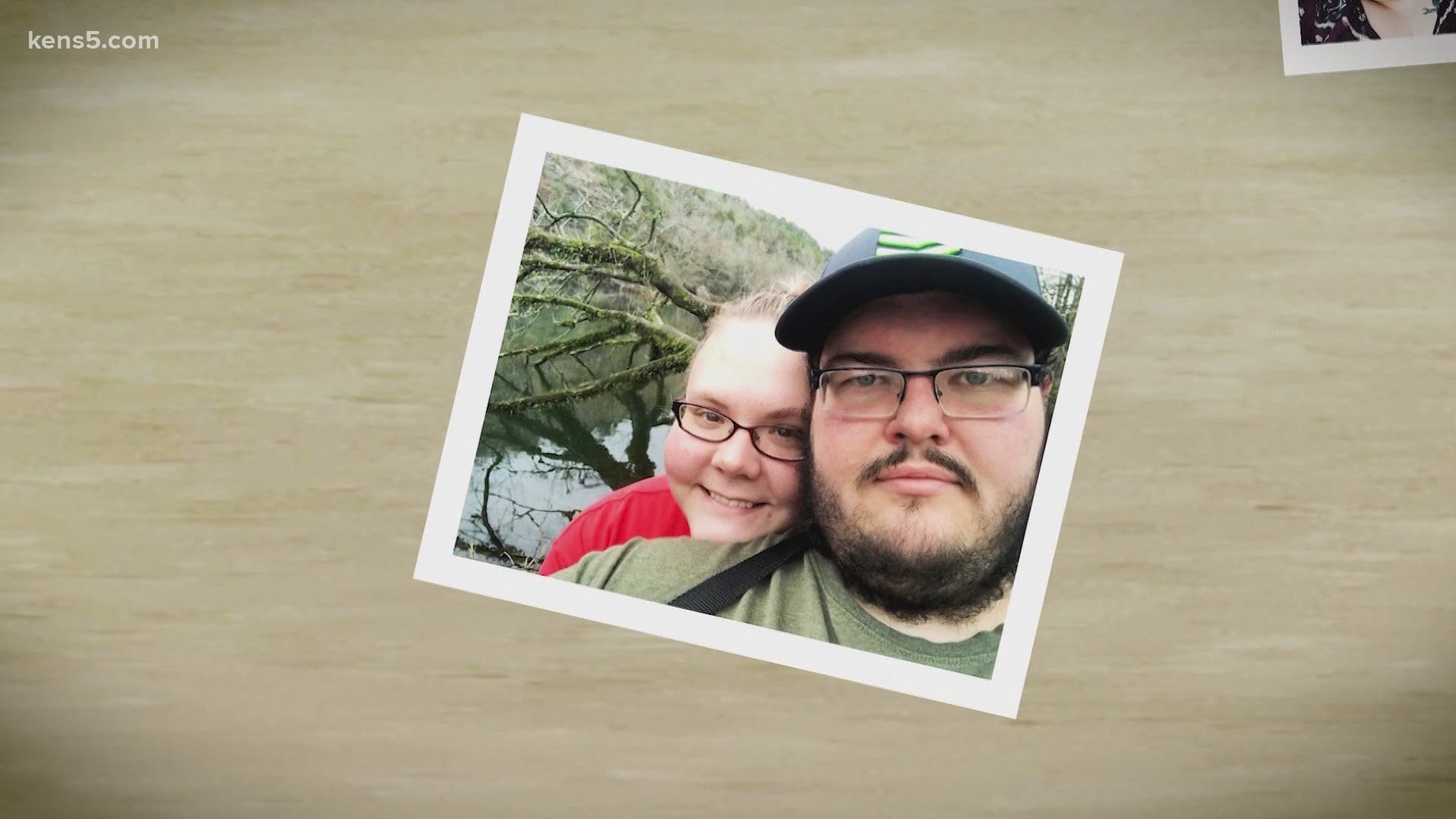SAN ANTONIO — Sleeping at night is now better for Amanda Evans. For more than a month, her rest was wrecked by panic.
"Checking to make sure he's breathing," she said. "To make sure he doesn't have a fever. To make sure everything is okay." The 31-year-old home healthcare nurse from Dennison tries to control doomsday scenarios about her husband's life.
Case Evans, who works at a skilled nurse facility, got the coronavirus in early October. His condition worsened, and so did his wife's anxiety. According to Amanda, they both have issues of anxiousness. She went into overdrive when she dropped her husband off at the hospital.
"I honestly and truly didn't know if I was ever going to be picking my husband back up again," Amanda said. "His lips were a certain shade of blue when I dropped him off."
She could only worry, talk to him over FaceTime, and tend to her symptom. Amanda had the coronavirus too.
"It's something that is just life-changing, and then having to go through everything alone, but together."
The couple's anxiety may have existed before they developed COVID-19, but Amanda's tipped up.
According to an Oxford University study, one in five coronavirus patients will get a first-time mental health diagnosis within 90 days of infection. The study believes virus survivors could face PTSD, depression, anxiety, insomnia and dementia.
"There's a very high level of mental issues that people are having because COVID," said UTSA psychologist Dr. James Bray..
Dr. Bray said the root causes are numerous and complex. The American Psychological Association's Stress in America documents the problem.
"People can get depressed because they're locked in their homes, and they don't have social interaction," Dr. Bray said.
He said unemployment and isolation are also factors.
Amanda and Case are back at work. She said it's where they got exposed. Panic sets in during certain situations, Amanda said.
"I took him lunch at work, and I had a minor panic attack," she said. "When I went to pick up lunch, I realized the guy at the drive-thru window wasn't wearing a mask and that I had forgotten to put mine on."
She said getting better means reeling in thoughts, becoming more educated about the virus, remaining vigilant in COVID-19 prevention and learning to cope like her husband.
"I know some people have kind of told me you just got to get past it," she said. "It's not that easy when you almost lost the one you love the most."
Related links on KENS 5:

